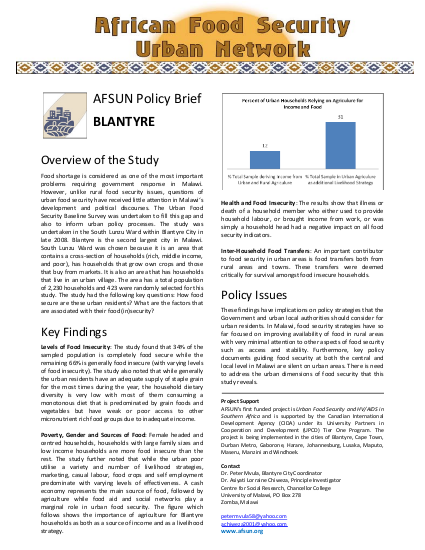
Food shortage is considered as one of the most important problems requiring government response in Malawi. However, unlike rural food security issues, questions of urban food security have received little attention in Malawi‘s development and political discourses. The Urban Food Security Baseline Survey was undertaken to fill this gap and also to inform urban policy processes. The study was undertaken in the South Lunzu Ward within Blantyre City in late 2008. Blantyre is the second largest city in Malawi. South Lunzu Ward was chosen because it is an area that contains a cross-section of households (rich, middle income, and poor), has households that grow own crops and those that buy from markets. It is also an area that has households that live in an urban village. The area has a total population of 2,230 households and 423 were randomly selected for this study. The study had the following key questions: How food secure are these urban residents? What are the factors that are associated with their food (in)security?
Links
Resource collections
- Locally led humanitarian action
- UN Habitat - Urban Response Collection
- Urban Response - Urban Crisis Preparedness and Risk Reduction
- Urban Response Collection - Community Engagement and Social Cohesion
- Urban Response Collection - Economic Recovery
- Urban Response Collection - Environment and Climate Change
- Urban Response Collection - Housing, Land and Property
- Urban Response Collection - Urban Crisis Response, Recovery and Reconstruction
- Urban Response Collection - Urban Resilience